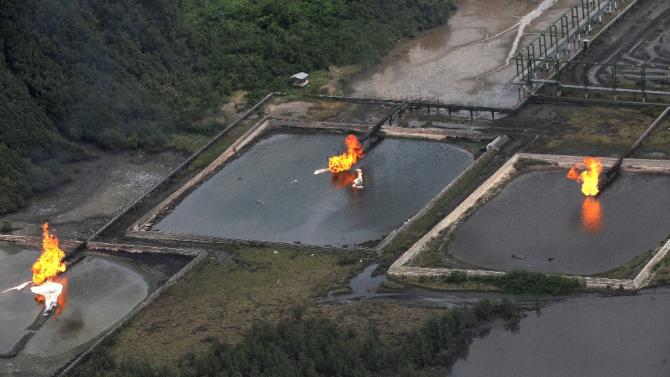Bro James,
Yes, Buhari faces a real challenge. Most of the people around him have spent a fortune to grasp power, and they must now reap the rewards. Nigeria is in for a long struggle ahead, as the new ministers and APC patrons are expected to refill or line their pockets, before thinking of the man on the street.
As for the foreign currency crunch faced by the current administration, most of it is caused by capital flight and distortion in balance of payments. The drop in oil prices just exacerbated the problem. Nigeria imports mostly industrial supplies (32% of total), transport equipment and parts (23%), capital goods (24%), food and beverage (11%) and consumer good. As an economy industrializes, we should expect a spike in the imports of industrial supplies and transportation equipment. Recently, it is estimated that for every $1 that enters the country, $9.2 leaves the country.
Borrowing money to finance recurrent expenditures such as Civil Service Salaries, as well as finance a patronage system does not make economic sense. Such payments (spending) do not generate any interest or other return-on-investment. Unfortunately, enemies and opportunists look for weak sports in our ranks to exploit. In the case of Nigeria, the weak spot was Buhari and his Yoruba, Hausa, and Fulani power mongers. They are in for rough ride, and so is Africa.
Augustine Agbor Enow
The outcome of my life is not more than three lines:
I was a raw material
I became mature and cooked
And I was burned into nothingness.
Rumi
I was a raw material
I became mature and cooked
And I was burned into nothingness.
Rumi
On Wednesday, May 6, 2015 3:44 PM, "James Ashu jamesashu@yahoo.com [manyu]" <manyu@yahoogroups.com> wrote:
Nigeria borrows to pay salaries with cash crunch worsening
Abuja (AFP) - A cash shortage caused by low oil prices has forced Nigeria to borrow heavily through the early part of 2015, with the government struggling to pay public workers, officials said Wednesday.
"We have serious challenges. Things have been tough since the beginning of the year and they are likely to remain so till the end of the year," said Finance Minister Ngozi Okonjo-Iweala, adding that more than half of this year's borrowing allowance had already been exhausted.
Nigeria, Africa's top economy and largest oil producer, has been hammered by the 50 percent fall in oil prices as crude sales account for more than 70 percent of government revenue.
"As it stands today, most states of the federation have not been able to pay salaries and even the federal government has not paid (April) salary and that is very worrisome," said Imo state Governor Rochas Okorocha.
Okonjo-Iweala said the federal government had a projected borrowing allowance for 2015 of 882 billion naira ($4.4 billion, 4 billion euros).
But 473 billion naira had already been used up to meet recurrent expenditures, including salaries of public employees.
"We have front-loaded the borrowing programme to manage the cash crunch in the economy," the minister told reporters.
According to the Central Bank (CBN), Nigeria currently has $29.6 billion in foreign reserves, but analysts said depleting those funds to offset revenue shortfalls could further undermine global confidence in the country's economy.
The CBN issues letters of credit to all domestic firms that import foreign goods, a measure which serves as a guarantee for international companies that have been reluctant to do business in Nigeria, said Jide Akintunde, editor of the Financial Nigeria magazine.
The CBN is expected to maintain reserves covering six months of imports.
"If we do not have the required level of reserves, imports could start to freeze up," Akintunde told AFP.
For Okonjo-Iweala, accelerated borrowing is the easiest strategy to manage the current shortfalls, Akintude said, although with a new government set to take power at the end month, the revenue crunch will soon be someone else's problem.
President-elect Muhammadu Buhari will be sworn in on May 29 and is not expected to retain any of the key ministers appointed by outgoing president Goodluck Jonathan.
Government critics have alleged that Nigeria's revenue crisis was compounded by excessive and wasteful political spending through last month's general elections.
Leaders of Buhari's All Progressives Congress (APC) party warned that the incoming administration will be confronted with serious economic headwinds after taking office.
But Akintunde said the news is not all bad for Buhari.
The current benchmark oil price is $54 per barrel and with crude selling above $60 this week, Nigeria should have sufficient revenue to meet costs and invest in public projects, he said.
"What the Buhari government will have to do is show a lot of discipline," Akintude added, criticising the outgoing government for a failure to honour a series of austerity promises and pledges to tackle graft.
Okonjo-Iweala has defended the government's performance, noting the economy was projected to grow at 4.8 percent this year and Nigeria was therefore "doing much better than many other oil producing countries," similarly hit by the collapse in crude prices.
But, as Jonathan leaves office with the government's finances in tatters, observers will likely note his administration's inability to save for a rainy day.
Nigeria has previously set its benchmark crude price between $75 and $80, and was supposed to deposit excess revenue in a savings account.
But even when crude was selling above $100 last year Jonathan's administration struggled to build savings, partly because the excess crude account has been repeatedly raided by powerful political actors.
But analysts note that the APC is partly to blame for the failure to pay salaries at the state level, with pro-Buhari governors suspected of spending state funds to support his presidential campaign.
__._,_.___
Posted by: James Ashu <jamesashu@yahoo.com>
| Reply via web post | • | Reply to sender | • | Reply to group | • | Start a New Topic | • | Messages in this topic (1) |
.
__,_._,___


No comments:
Post a Comment